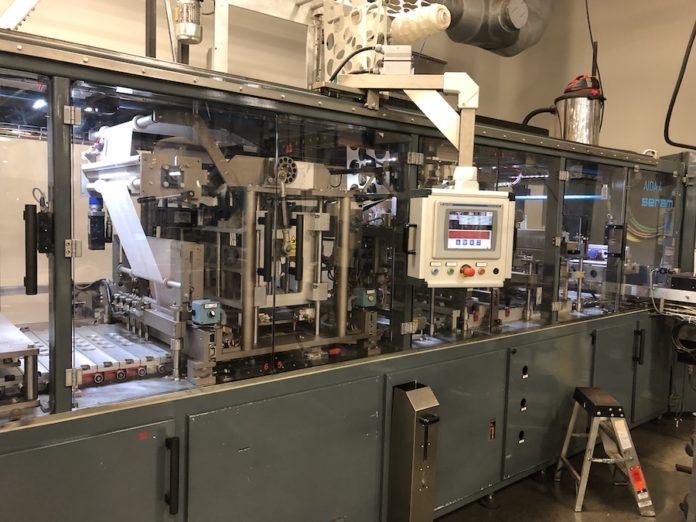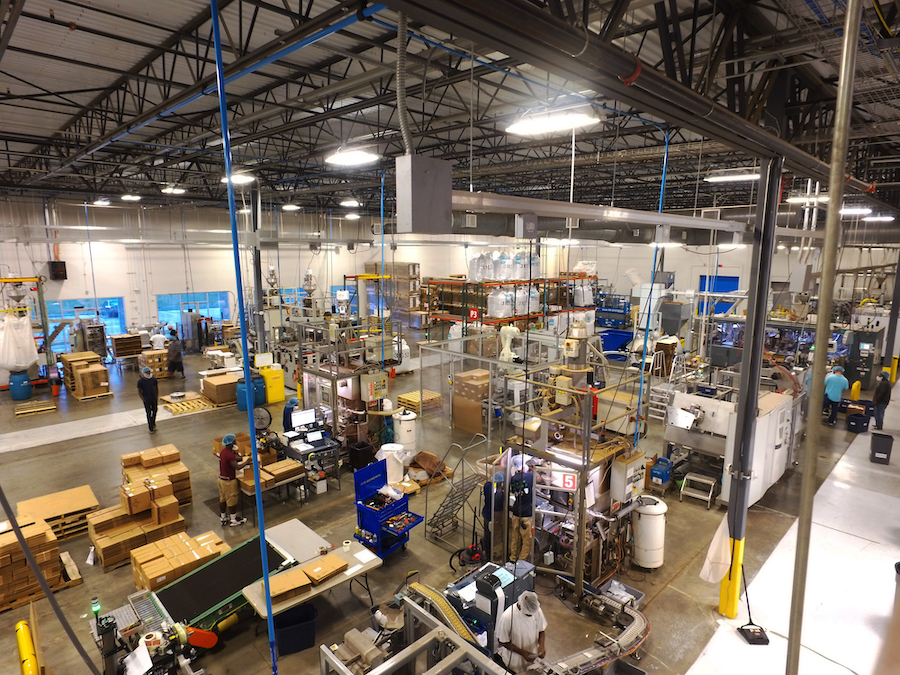
By Louis Columbus, enterprise software strategist, DELMIAWorks
There is no doubt that practicing sustainability is helping food and beverage (F&B) manufacturers to build their brand value, customer loyalty, and market share. Consider a 2021 survey of 14,000 consumers in 14 countries by Edelman, which found that 52% of respondents were four times more likely to buy a brand committed to addressing climate change. Similarly, 73% of the global consumers participating in an NielsenIQ survey said they would definitely or probably change their consumption behavior to reduce their impact on the environment.
However, sustainability is increasingly tied more directly to strong business performance. Notably, a 2021 survey of 1,100-plus CEOS by Accenture revealed that those with the most deeply embedded sustainability practices outperform their peers by 21% on both profitability and positive environmental and societal outcomes.
Sustainability linked to lean manufacturing
Savvy F&B manufacturers are already looking at how they can turn their environmental initiatives into a competitive advantage. Design-for-sustainability is also now a high priority across the food packaging industry as manufacturers look to reduce waste and contribute to a more circular economy by creating packaging products and materials that are biodegradable, lighter-weight, and recyclable.
Together, the efforts of F&B companies, packaging providers, and the supply chains they rely on are helping to reduce carbon emissions and non-recyclable waste. They are also creating support networks and frameworks manufacturers need to realize lean manufacturing gains from their investments.
At the same time, many of the lean production processes F&B manufacturers have practiced for years can contribute to greater sustainability results. Let’s look at three real-world examples of how companies in the F&B industry are achieving greater sustainability levels that directly contribute to improving lean manufacturing performance.
1. Cut operating costs by reducing waste
Manufacturers in the F&B industry are finding new ways to reduce their energy use and water waste through water reclamation and alternative energy sources. Their efforts not only reduce operating costs but in some cases improve production processes as well. For example, Radius Packaging Inc. recently implemented a closed loop system for the company’s production water supply.
“The closed loop system for our process water has allowed us to run more efficiently. We have VFDs (variable frequency drives) that help maintain water temperature and pressure as machine capacity fluctuates. Whether we’re running one machine or multiple machines, our system is able to balance out and adjust accordingly in real time,” said Josh Kouba, VP of Engineering at Radius Packaging.
Radius Packaging has also invested in an Adiabatic fluid cooler. The fluid cooler enables the company to leverage the cold Wisconsin weather and take advantage of free cooling for their process water during the winter months, further saving energy costs while contributing to the manufacturer’s sustainability goals.
2. Collaborate on a common roadmap
Forward-thinking F&B manufacturers are ensuring that their sustainability and lean process innovation teams collaborate on a common roadmap in which sustainability objectives are indexed to lean manufacturing goals. One such company is Pod Pack, a producer of single-serve coffee and tea products. Through a shared roadmap, the manufacturer was able to adapt production workflows to become more sustainable in a matter of months.

“We put a lot of time and effort into what we call sustainable innovation,” explains Chuck McMillan, senior vice president of sales and marketing at PodPak. “It’s not just looking at what’s in the market in terms of the products out there, but brainstorming on issues like, “Is there a better innovation out there? Is there something different that we can do?”
Importantly, when developing a common roadmap, it is important to set specific goals for sustainable initiatives that are indexed to costs, revenue, and line-of-business key performance indicators (KPIs). This creates greater accountability and focus on how production and sustainability teams can work together to achieve shared goals.
Both Pod Pack and Radius Packaging began by quantifying the benefits of sustainable innovation by product line and production process in order to benchmark the performance of their sustainability initiatives to revenue. Additionally, Pod Pack aims to eventually use the metrics to incentivize employees’ sustainability innovation.
Embrace design-for-sustainability
More manufacturers serving the food and beverage industry are adopting design-for-sustainability and compostable packaging designs. These companies are contributing to and becoming more integrated with the circular economy efforts of the supply chains they participate in. Pod Pack is a case in point.
“We are seeing demand for compostable, sustainable packaging across all industries, and coffee is no exception. So, we have been working with the Biodegradable Products Institute to develop high quality, fully Industrial compostable solutions,” notes Chuck McMillan of Pod Pack.
Additionally, Pod Pack has taken the initiative to obtain several certifications that establish the company as a leader in sustainability. These include Certified Organic, Biodegradable Products Institute (BPI) Certified, Rainforest Alliance Certified, Kosher, Global Food Safety Initiative (GFSI), and Safe Quality Food.
Conclusion
Customer demand for more sustainable products and packaging is rapidly changing food and beverage manufacturing along with the industries that support it, such as packaging. Manufacturers speak often of sustainable innovation today and are working to define frameworks unique to their businesses. The good news is they don’t need to start from scratch. Core strategies that scale across all F&B manufacturers are already helping companies to become more competitive by unifying their green efforts with lean manufacturing goals.
 Louis Columbus is currently serving as principal of DELMIAWorks. Previous positions include product management at Ingram Cloud, product marketing at iBASEt, Plex Systems, senior analyst at AMR Research (now Gartner), marketing and business development at Cincom Systems, Ingram Micro, a SaaS start-up and at hardware companies. He’s also a member of the Enterprise Irregulars.
Louis Columbus is currently serving as principal of DELMIAWorks. Previous positions include product management at Ingram Cloud, product marketing at iBASEt, Plex Systems, senior analyst at AMR Research (now Gartner), marketing and business development at Cincom Systems, Ingram Micro, a SaaS start-up and at hardware companies. He’s also a member of the Enterprise Irregulars.







